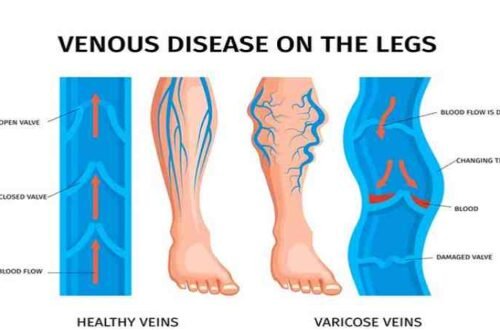In recent years, the logistics and warehousing industry has witnessed a significant transformation with the advent of automated storage and retrieval systems (ASRS). These systems, which include robotics and sophisticated software, have revolutionized the way goods are stored and retrieved, leading to increased efficiency and reduced operational costs. One of the prominent players in this field is AutoStore, a company known for its innovative cube storage technology. However, the journey to technological supremacy has not been without its challenges. A notable episode in this journey is the high-profile legal battle involving AutoStore and a competitor, referred to as “Autostorewessling.” This article delves into the intricacies of the legal dispute, the implications for the industry, and the broader impact on technological innovation. Autostore Uk High Court Autostorewessling The
Background: The Rise of AutoStore
AutoStore, founded in Norway in 1996, has emerged as a leading provider of robotic storage and retrieval systems. Its flagship product, the AutoStore system, utilizes a cube storage design where bins are stacked vertically within a grid. Robots move along the top of the grid to retrieve bins as needed, delivering them to workstations for picking and packing. This system maximizes storage density and allows for high-speed operations, making it an attractive solution for e-commerce and retail businesses. Autostore Uk High Court Autostorewessling The
The company’s success can be attributed to its commitment to innovation and its ability to address the evolving needs of the logistics industry. As the demand for faster order fulfillment and efficient space utilization grew, AutoStore’s technology provided a viable solution, leading to its widespread adoption across the globe.
The Legal Dispute: AutoStore vs. Autostorewessling
The legal conflict between AutoStore and Autostorewessling began when the latter introduced a similar storage system that AutoStore claimed infringed on its patents. The case was brought before the UK High Court, where both parties presented their arguments. AutoStore contended that Autostorewessling’s system violated several of its patents related to the cube storage design and the functioning of the robots.
On the other hand, Autostorewessling argued that its system was based on independent innovation and did not infringe on Autostore’s intellectual property. The company highlighted differences in design and functionality to support its claim. The case drew significant attention from industry stakeholders, as the outcome had the potential to set a precedent for future intellectual property disputes in the ASRS sector.
Key Arguments and Evidence
AutoStore’s Case
AutoStore’s legal team presented a detailed analysis of the patents in question, emphasizing the novelty and uniqueness of their cube storage technology. They argued that Autostorewessling’s system replicated critical aspects of their design, including the grid structure, the method of bin retrieval, and the coordination of robots. Expert witnesses from the field of robotics and automation were called upon to testify, providing technical insights into the alleged similarities. Autostore Uk High Court Autostorewessling The
Additionally, AutoStore showcased evidence of prior communication between the two companies, suggesting that Autostorewessling had access to proprietary information that could have influenced the development of their system. This evidence aimed to bolster AutoStore’s claim of patent infringement and unfair competition.
Autostorewessling’s Defense
In response, Autostorewessling’s defense focused on demonstrating the originality of their technology. They presented alternative designs and engineering principles that, according to them, differentiated their system from AutoStore’s. Their legal team argued that any similarities were superficial and did not constitute patent infringement. Autostore Uk High Court Autostorewessling The
Autostorewessling also questioned the validity of some of AutoStore’s patents, claiming that they were overly broad and should not have been granted in the first place. This counterclaim aimed to weaken AutoStore’s position and cast doubt on the legitimacy of its patent portfolio.
The Verdict and Its Implications
After a thorough examination of the evidence and arguments, the UK High Court delivered its verdict. The court ruled in favor of AutoStore, finding that Autostorewessling’s system did indeed infringe on several of AutoStore’s patents. As a result, Autostorewessling was ordered to cease the production and sale of the infringing system and to compensate AutoStore for damages.
The verdict was a significant victory for AutoStore, reinforcing the strength of its intellectual property and its position as a leader in the ASRS market. For Autostorewessling, the ruling was a setback that required them to rethink their strategy and potentially redesign their system to avoid future legal challenges. Autostore Uk High Court Autostorewessling The
Broader Impact on the Industry
The AutoStore vs. Autostorewessling case has far-reaching implications for the logistics and warehousing industry. It underscores the importance of robust intellectual property protection in fostering innovation and maintaining a competitive edge. For companies operating in the ASRS space, the case serves as a reminder to invest in patenting their technologies and to be vigilant about potential infringements.
Moreover, the case highlights the role of the judiciary in resolving complex technological disputes. The UK High Court’s decision not only addressed the specific conflict between the two companies but also set a precedent for future cases involving similar technologies. This precedent provides a legal framework for other companies to navigate intellectual property issues, potentially reducing the frequency of such disputes through clearer guidelines. Autostore Uk High Court Autostorewessling The
The Future of Automated Storage and Retrieval Systems
Looking ahead, the AutoStore vs. Autostorewessling case may influence the direction of innovation in the ASRS industry. Companies are likely to place greater emphasis on differentiating their technologies to avoid legal conflicts. This drive for uniqueness could lead to the development of new and improved storage solutions, benefiting the industry as a whole.
Additionally, the case may prompt increased collaboration between companies to share knowledge and develop standards that facilitate interoperability while respecting intellectual property rights. Such collaboration could accelerate the adoption of automated storage systems and drive further advancements in logistics automation. Autostore Uk High Court Autostorewessling The
Conclusion
The legal battle between AutoStore and Autostorewessling is a testament to the dynamic and competitive nature of the logistics and warehousing industry. As companies strive to innovate and capture market share, the protection of intellectual property becomes paramount. The UK High Court’s ruling in favor of AutoStore not only affirmed the company’s technological leadership but also reinforced the importance of respecting patents and fostering fair competition.
For industry stakeholders, the case serves as a valuable lesson in the complexities of patent law and the significance of safeguarding innovative technologies. As the ASRS industry continues to evolve, the principles established by this case will likely shape the future of logistics automation, driving progress while ensuring a level playing field for all players. Autostore Uk High Court Autostorewessling The





